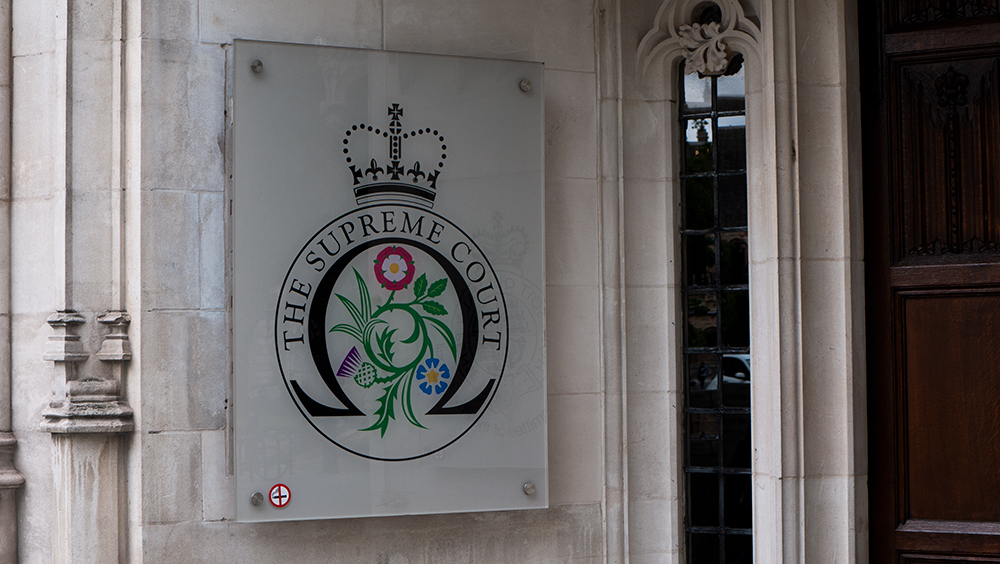UK Supreme Court refuses three appeals in cases where alleged medical negligence caused PTSD in relatives after death

The UK Supreme Court has ruled in three conjoined appeals that persons who witness the death of a close family member in circumstances caused by medical negligence cannot claim compensation for psychiatric injury.
The defendants in the cases, two NHS Trusts and a doctor, had applied for the claims to be summarily dismissed on the basis that no law allowed for the claims to succeed.
The appeal was heard by Lord Briggs, Lord Sales, Lord Leggatt, Lord Burrows, Lady Rose, Lord Richards, and Lord Carloway. Lord Leggatt and Lady Rose delivered the leading judgment with which five other judges agreed. A separate concurring opinion was issued by Lord Carloway, and a dissenting opinion was given by Lord Burrows.
Expressed reservations
In the first case, the appellants witnessed their father, Mr Paul, collapse on the street after suffering from a cardiac arrest. He was later pronounced dead on arrival at hospital. Some 14 months earlier, he had received hospital treatment for acute coronary symptoms, and it was alleged that were it not for negligence in not arranging coronary angiography he would not have collapsed when he did.
The appellants in the second case were the parents of a deceased six-year-old girl who died from veno-occlusive disease that a consultant paediatrician had failed to diagnose. She died in distressing circumstances after taking unwell during a school trip, which left her parents with post-traumatic stress disorder. The third appellant was the mother of a 20-year-old woman who died of undiagnosed pneumonia who heard her daughter’s dying breaths on a voicemail message.
Each case was struck out by the court before being heard jointly by the Court of Appeal of England and Wales. It held that it was bound by the earlier decision of Taylor v A Novo (UK) Ltd (2013) to conclude that the claims could not succeed. However, the court expressed reservations about whether that case had been correctly decided.
Counsel for the appellants sought to argue that the law by which a person could claim compensation for injury caused by witnessing an accident could be extended to include cases where, as a result of a doctor’s negligence, a person died or manifested injury from a disease which proper treatment would have prevented.
Cannot impose duties
In their judgment, Lord Leggatt and Lady Rose said of the law generally: “The general policy of the law is opposed to granting remedies to third parties for the effects of injuries to other people. What therefore principally requires justification is not the narrowness of the category of cases in which a claimant who suffers personal injury which is secondary to the death or injury of another person can recover damages but the fact that it exists at all.”
They continued: “We have not been asked on these appeals to alter or abrogate the limits on the recovery of damages by secondary victims in accident cases. Instead, this court is asked to recognise as analogous a category of cases in which illness is sustained by a secondary victim as a result of witnessing a death or manifestation of injury which is not caused by an external, traumatic event in the nature of an accident but is the result of a pre-existing injury or disease. We do not consider that such cases are analogous.”
On the scope of doctors’ duty of care, they said: “Persons whom doctors ought reasonably to have in contemplation when directing their minds to the care of a patient do not include members of the patient’s close family who might be psychologically affected by witnessing the effects of a disease which the doctor ought to have diagnosed and treated. Hence there does not exist the proximity in the relationship between the parties necessary to give rise to a duty of care.”
They concluded: “The thought that these tragic events could have been avoided if the hospital or doctor had exercised due care must, as in every case of wrongful death, add further to the agony and perhaps anger that [the appellants] feel. The law cannot, however, impose duties and liabilities on the basis of sympathy, however strongly felt.”
The appeal was therefore refused.







